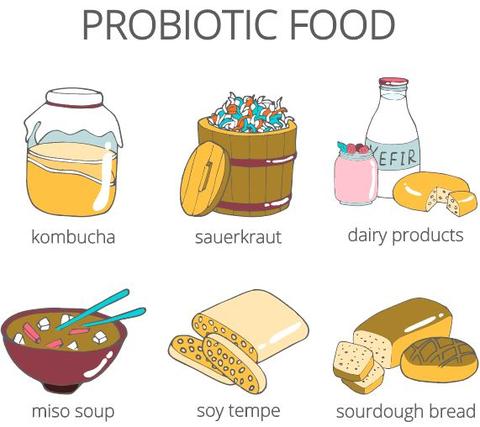BENEFITS OF CONSUMING FERMENTED FOODS
FERMENTATION: In food processing fermentation is the process of conversion of carbohydrates to alcohols and carbon
dioxide or organic acids by using yeasts, bacteria or their combination under
anaerobic conditions. In simple terms fermentation is the chemical conversion
of sugars into ethanol. The alcohol or
acids act as a natural preservative and give fermented foods a distinct zest
and sourness. Fermentation also promotes the growth of good bacteria, known as
probiotics.

• Increases nutrient absorption - Fermentation increases the bio-availability of minerals present in food thereby helping the body to assimilate more nutrition. The micro-organisms breakdown complex protein, carbohydrates and fats into more easily assimilated molecules. As we know, the healthy gut flora plays an important role in absorption, our body is able to absorb the maximum amount of nutrients thus, preventing nutrient deficiencies that are so common today.
• Increased bio-availability of nutrients - The fermentation
process increases the bio availability of nutrients like folic acid, riboflavin,
niacin, thiamine, biotin and Vitamin K.
• Improves digestion: Fermentation helps break down nutrients in food, making them easier to digest than their unfermented counterparts. For example, lactose - the natural sugar in milk is broken down during fermentation into simpler sugars that is glucose and galactose. People who are lactose intolerant are generally fine eating fermented dairy like kefir and yogurt (PMID-12728216).
Moreover, fermentation helps break down and destroy
anti nutrients which are compounds found in seeds, nuts, grains, and
legumes that interfere with the nutrient absorption. Consuming fermented legumes
increases the absorption of beneficial nutrients thereby making them more
nutritious than unfermented ones.
The probiotics produced during fermentation can help
restore the balance of friendly bacteria in your gut and may temper some
digestive problems (PMID-22529959) Evidence shows that probiotics can reduce uncomfortable
symptoms of Irritable bowel syndrome which is a common digestive
disorder (PMID-19220890). A six-week study in 274 adults with IBS found that consuming 125gm
of yogurt-like fermented milk daily improved IBS symptoms including bloating
and stool frequency . Fermented foods may also lessen the severity of
diarrhea, bloating, gas, and constipation (PMID-29118557). For these reasons, adding
fermented foods to your diet may be useful if you regularly experience gut
issues.

Very gud
ReplyDelete